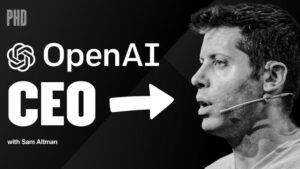
ChatGPT, launched on November 30, 2022, has been defined as the Web browser of AI. Its release was a seminal moment when everyone in the industry “got it,” in terms of what Generative AI could do.
But Altman is now in big trouble. Key lieutenants are leaving. Microsoft now considers OpenAI a competitor rather than an ally, after giving it $13 billion (mostly credits on the Azure cloud) to develop ChatGPT.
Since raising new capital in February at a valuation of $80 billion, things have gone pear-shaped. There have been system outages , capabilities aren’t advancing rapidly, and ChatGPT 5 may not be any good.
I have written about the problems, as have others whom I respect. Big AI systems are subject to hallucinations. The brute force approach being used by ChatGPT, and its main rivals, won’t yield true intelligence.
The good news is that the GPU power being brought to market by Nvidia, and being installed by the Cloud Czars, will be used. “Small AI,” the digital assistants from companies like ServiceNow, Palantir, and Adobe, are providing a return to customers. Apple will get a return on its Apple Intelligence investments.
But for Big AI to create a profit it needs to be re-thought. It needs new algorithms. It needs to grind down hucksters like Sam Altman and start again, this time with the computing resources it needs installed and their owners humbled by the market.










